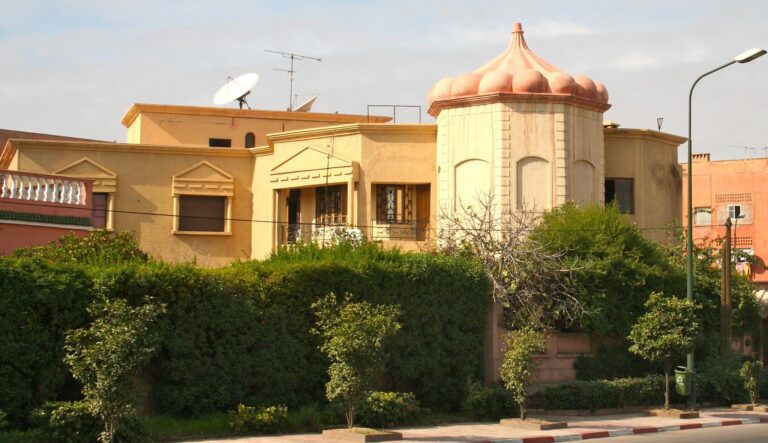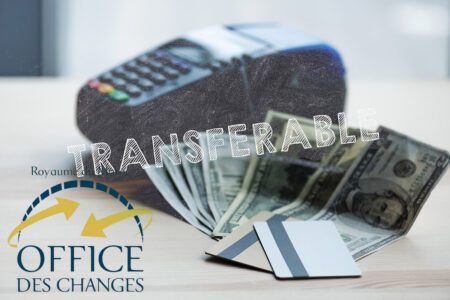On several occasions, I’ve seen expatriates find themselves in a very awkward situation because they don’t have a ‘legal’ lease contract.
The proposal is often interesting: a foreigner (very often French or Spanish, the practice is very widespread in the French community) has bought a property in Morocco. He may or may not be a Moroccan resident, and he rents the property to another foreigner, with a payment in euros into his account overseas. Obviously, in this case, the lease contract and the income are not declared in Morocco. This is totally illegal, and exposes both the lessor and the lessee to numerous risks. In short, it’s a ‘false bargain‘.
So here’s an update on :
- the law on leases in Morocco
- the obligations of the lessor and the lessee
- the risks for both in the event of an illegal ‘contract
Cela fait plusieurs fois que je vois des expatriés se retrouver dans une situation très gênante parce qu’il n’ont pas de contrat de bail “légal”.
Legislation on lease contracts
Moroccan law on rental contracts has recently been amended. It applies to both residential and commercial leases. What does this law, Law 67-12, say?
- leases must be in writing
- it must state clearly and precisely the property being rented, and the identity of the lessor and lessee
- the date on which the contract is signed and its duration are specified, as are the costs of the contract
- an inventory of fixtures must be drawn up when the property is let
- the security deposit is a maximum of two months’ rent; it must be returned within two months of the end of the contract, at the latest, or be deducted from the final rental payments
- the rent may not be revised for three years, and by no more than 8% for residential premises
- the tenant is obliged to subscribe insurance
The obligations of the lessor and the lessee
Towards the Moroccan administration
The lease contract must be registered with the local council. (What’s more, when it is signed with a non-resident foreigner, it must first be drawn up by a notary or an adul, it seems).
It is the declaration to the local authority that will make it possible to :
- legalise the lease, and therefore give it contractual force (remember that in Morocco, EVERYTHING is legalised)
- inform the Moroccan government – and therefore the tax authorities – of the existence of the lease.
The tenant must pay two taxes, the housing tax (taxe d’habitation, formerly known as the taxe urbaine) and the municipal service tax (taxe des services communaux or taxe d’édilité).
Until recently, the landlord was liable for all these taxes, so the rent was ‘tax inclusive’. The tax reform requires the tenant to pay, but some landlords are not ‘up to date’: if you rent, make sure you specify what is included and what is not.
To each other
the tenant is obliged to maintain the property in a “sanitary condition” – within the limits of the inventory of fixtures on entry – and to pay for minor repairs (painting, plumbing, etc.)
the landlord is obliged to offer a “sanitary” property on departure
Why is a contract “paid for overseas” not legal?
The concept of territoriality
By definition, a property is subject to the legislation of the territory in which it is located. This is known as “territoriality“. In law, transactions may be subject to more than one law, particularly when there is import-export, when a service is provided for a foreign customer, or in cases such as mixed marriages.
Not so in the case of property rental. This is because the service (i.e. the use of the house or flat) is provided on the premises where the building is located. In our case, therefore, Moroccan law applies.
(However, the income from this rental may have a more complex status).
Foreign exchange control
The first offence under Moroccan law is not to comply with foreign exchange controls.
And that’s exactly the aim of this scheme.
Paying rent in euros in France that should have been paid in dirhams in Morocco is in fact “illegally exporting currency”. In Morocco, this is an offence punishable by a fine of between 500 and one million dirhams, equal to at least five times the amount of currency fraudulently exported, and/or imprisonment for between one month and five years (article 15 of the Dahir of 30 August 1949). In addition to this fine, the “corpus delicti” may be confiscated or, if this is not possible, property or cash of an equivalent value may be seized. This amounts to six times the value of the currency in question.
Taxes
There are two types of local tax. One is payable by the landlord, the other by the tenant. By paying the rent directly directly overseas, without declaring the contract to the local council, the landlord and tenant avoid paying any tax.
Housing tax
It is based on the rental value of the property. For principal residences, an allowance of 75% is applied. The rate then depends on the rental value:
- From 0 to 5,000: 0% discount
- 5,001 to 20,000: 10% discount
- From 20,001 to 40,000: 20% of the purchase price
- More than 40,000: 30% discount
Municipal services tax (council tax)
In French “taxe des services communaux“, formerly taxe d’édilité. In the city, council tax is 10.5% of the rental value.
Income tax
The owner is, of course, required to declare the income from the rental. In Morocco. Even if he is not residentand pays tax in his own country (but double taxation treaties allow him, of course, to avoid paying tax twice if he does things legally).
The risks of a black market rental contract
No proof of residency
For foreigners wishing to obtain a residence permit in Morocco, the lease is an essential part of the procedure. In other words, without an official lease, no card. I’ve known families with school-going children who had to go on a weekend trip to Spain as a group every three months.
During the lockdown, this caused even more dramatic problems, with separated families unable to take advantage of special flights to reunite.
No recourse in the event of a dispute
Generally speaking, neither the tenant nor the landlord has any recourse. Which court can decide?
Bringing the dispute before a Moroccan court means recognising the various frauds, and therefore exposing yourself to penalties.
But the French court does not have jurisdiction (principle of territoriality). And even if a French court agreed to ‘judge’ the dispute, it could not do so, for lack of admissible evidence.
In disputes between landlords and tenants, the proof is the bailiff’s report. It would therefore be necessary to send a Moroccan bailiff to ‘establish’ the situation, and then have a procedure known as exequatur, which allows a French court to take into account a Moroccan bailiff’s report as if it had been made by a French person. Except that… this procedure goes through the intermediary of the Moroccan authorities (Mutual Legal Assistance Convention, Section 2, Article 7).
Fines and tax surcharges
In addition to the exchange control offence, failure to declare the lease, and therefore to pay council tax, will result in a 15% surcharge.
What’s more, even if the landlord is liable for the tax, if the landlord fails to pay it, the tenant may be required to pay it.
A tenant who crashes in
In the absence of a legal lease, the person occupying the premises and holding the keys is presumed to be the rightful occupier. Since no clause in a “non-existent” contract can be invoked against them, there is no reason to evict them. The procedure for reclaiming your home will go before a court, to which you will have to explain why the occupant is there.
What’s more, while law 67-12 introduced procedures for quickly evicting an “occupant without title”, the tenant, in this particular case, has a title of occupancy: a contract, albeit an illegal one, and proof of payment of rent. It is primarily the landlord who is at fault, and who may suffer all the hardships described above once his fraud has become official.
It will take around five years to get rid of a tenant who does not wish to leave (and who may, in the same way, decide to stop paying the rent). And if the landlord is not present in Morocco, it’s even worse.
Conclusion : un contrat de bail est rattaché au pays où le logement se trouve. Essayer de faire autrement est une fraude, et ça peut “rapporter gros”.
 A typo or syntax error? You can select the text and hit Ctrl+Enter to send us a message. Thank you! If this post interested you, maybe you can also leave a comment. We'd love to exchange with you !
A typo or syntax error? You can select the text and hit Ctrl+Enter to send us a message. Thank you! If this post interested you, maybe you can also leave a comment. We'd love to exchange with you !




